by Brian Hioe
語言:
English
Photo credit: Environmental Rights Foundation
New Bloom’s Brian Hioe spoke with Sharon Lavigne, Diane Wilson, Nancy Bui, and Father Peter Nguyen Van Hung on Lavigne, Wilson, and Bui’s trip to Taiwan late last month to attend a Formosa Plastics’ shareholders meeting.
This was to bring up criticism of Formosa Plastics’ environmental and climate justice wrongdoings internationally, whether in Louisiana, Texas, or Vietnam, as part of the Monitor Formosa Alliance.
Brian Hioe: Could you all first introduce yourself?
Sharon Lavigne: I’m Sharon Lavigne. I come from St. James, Louisiana. I’m the director and founder of RISE St. James.
Diane Wilson: I’m Diane Wilson. I’m executive director of the San Antonio Bay Estuarine Waterkeeper.
Nancy Bui: My name is Nancy Bui, I’m the vice president of Justice for Formosa Victims. We’re from Austin, Texas.
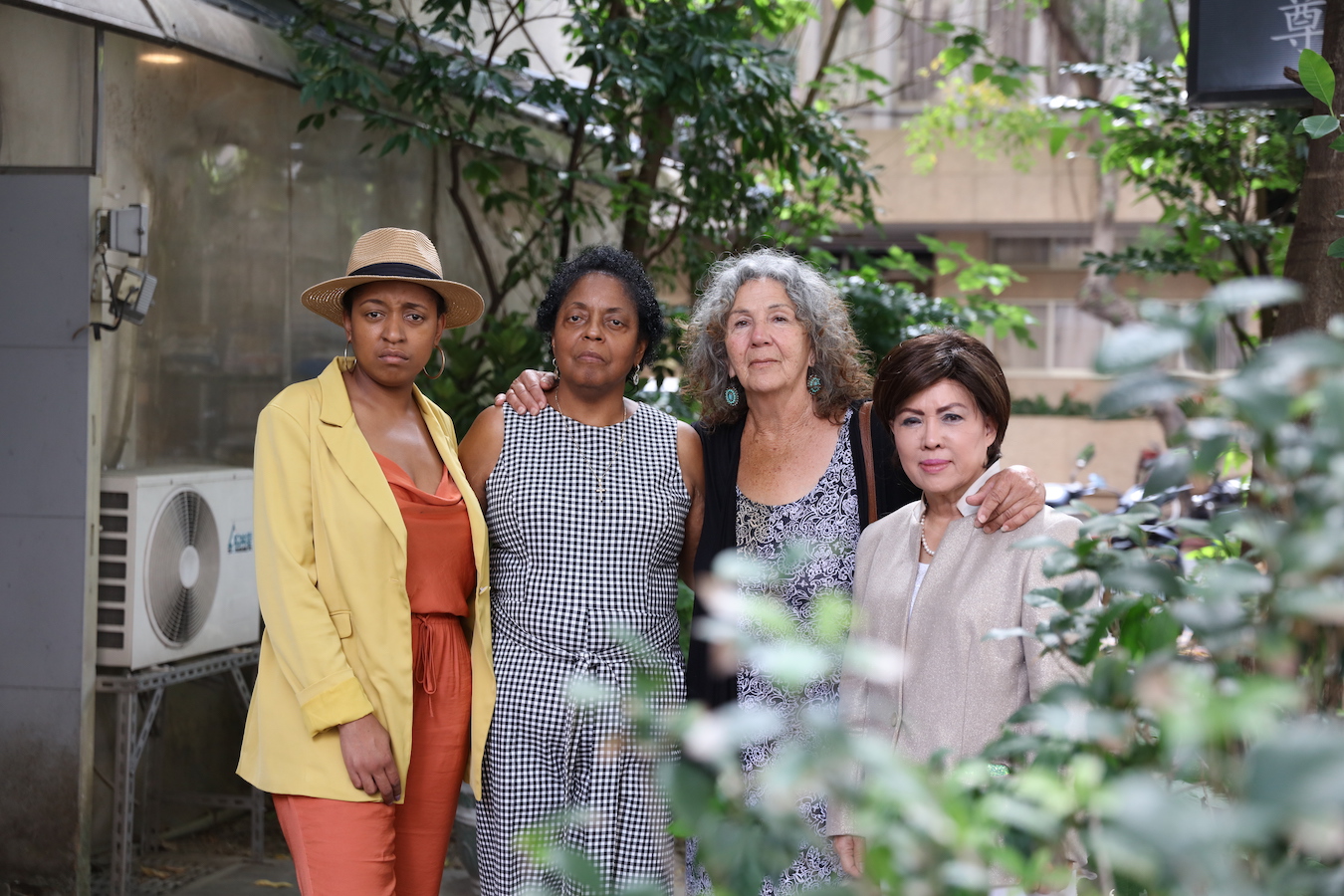 Photo credit: Environmental Rights Foundation
Photo credit: Environmental Rights Foundation
BH: Could you talk a bit about your trip this time and what you’ve done?
DW: I’ve done this before. I was at a shareholder’s meeting in maybe 2010. They wouldn’t let us in, wouldn’t let us speak, and as a matter of fact, it was in the same place, in the same hallway. There were forty policemen in brown shirts, there were the activists, and the reporters, and it was so emotional. We just started going for the door.
We were going to go in. They were trying to block us out. It was so many activists and reports and TV cameras that the door burst open, we fell inside, and did a sit-in. And they drove us out.
This time was a bit different in that it was all very legal. We were already on the speakers’ list to speak. But it was already getting where, though we were on the list, they were using whatever little excuse they wanted to not let us speak. It wasn’t until one of the women spoke out against it, and went up spoke, then Nancy went up.
I personally was prepared that if they didn’t allow us to speak, we were going to sit down, and they were going to have to drag us out again. I didn’t know what they were going to allow us do. I was prepared, I came all this way, and I was going to say something one way or another. I’m glad I got to talk.
It was good to get that close to Formosa. To be in front of their shareholders. Not many grassroots activists get to that close to them. You can get so diffused, your face, and your cause, that they don’t even know you. You get right in their faces and they know exactly where you’re coming from.
BH: There are groups here representing Louisiana, Texas, Vietnam, and other places. Could you talk about trying to connect the things that Formosa has done in various places?
SL: Coming together as a group of us is very powerful. Getting the word out, attracting media attention, and exposing Formosa–we will be victorious. I feel like that. I don’t feel like we’re going to lose, and we’re going to keep fighting until we win.
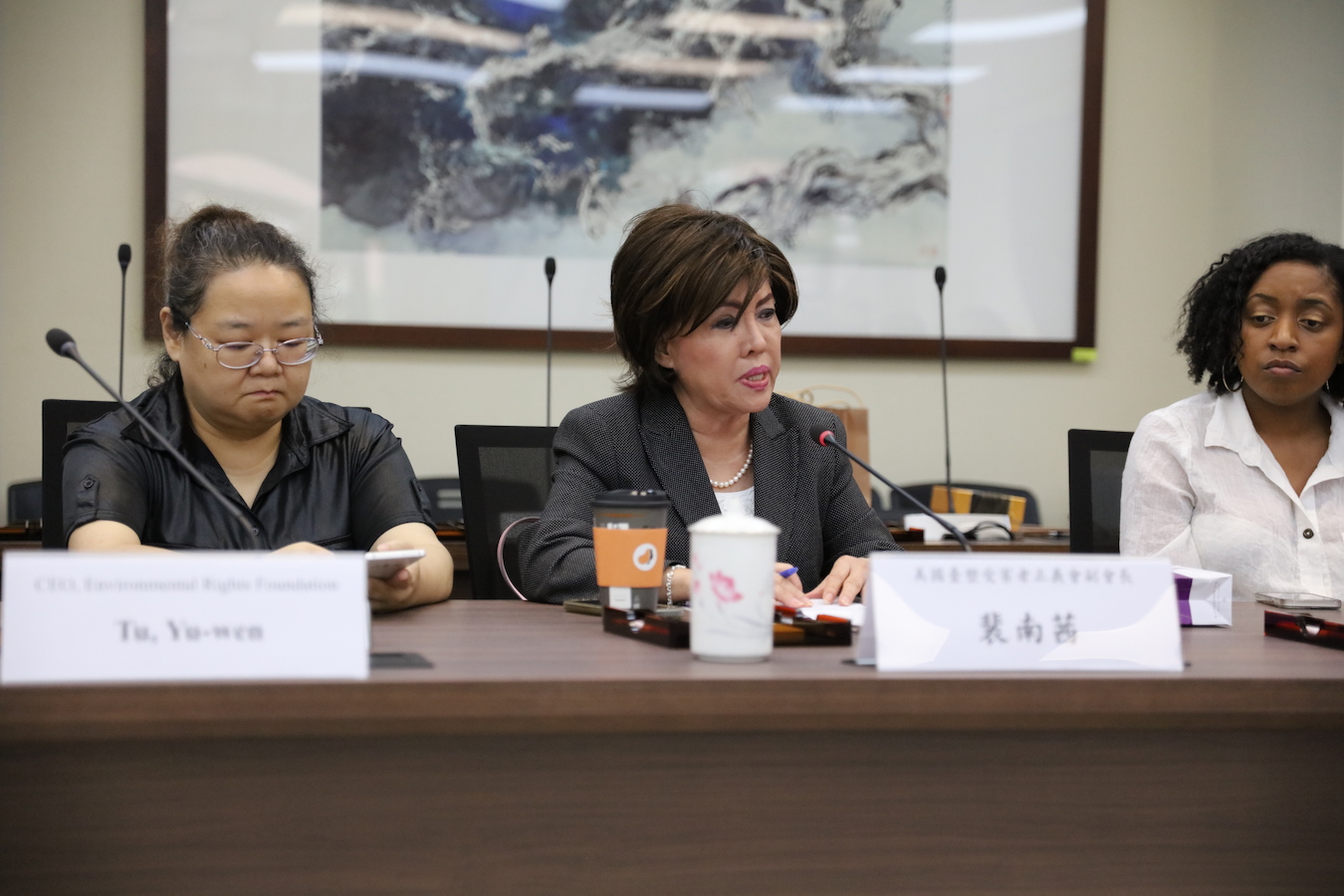 Photo credit: Environmental Rights Foundation
Photo credit: Environmental Rights Foundation
NB: We have meetings every other week, one-hour sessions. We’ve been together for quite some time. However, being physically present here strengthens our bond, and we encounter numerous friends, including lawyers and NGOs, who come forward to support us. It makes us feel empowered.
Today was especially significant as we met with the Human Rights Commissioner in her office. I have high hopes. Perhaps the government here is starting to realize the ongoing impact of what they’ve done to Vietnam on its people. When I informed her that parents still work far away from home, leaving their children to live with grandparents or relatives, and how their lives were upended seven years ago, causing some to drop out of school and lose their childhood, it was overwhelming. Their future has been compromised.
It’s incredibly difficult. I couldn’t hold back my tears because every time I think about those children, I can’t help but cry. I have spoken directly to them and their parents.
To my surprise, her response was that she was unaware of these circumstances. She had no idea that the fishermen were still enduring hardships. I hope that the government, especially those in positions close to the top, comprehends the plight of the victims.
We also met with Congressman Handy Chiu. When I last visited in December, I encountered him during the press conference at the parliament, where he advocated for us. We presented a witness testimonial on video. This couple, who had married, had to flee just three days later when the government pursued them. They sought refuge in Thailand, where they lived for 4.5 years before being resettled in Canada. During their journey, they endured the challenges of living in the jungle, fearing the wild animals.
Since he arrived just two months ago, he had to provide his testimony via video as he is unable to travel to Taiwan. They must reside there for approximately a year before being allowed to travel abroad.
I arrived in Taiwan with a letter containing signatures from seven US Congressmen and Congresswomen, which we lobbied hard to obtain. However, we have not received any response from the Ministry of Foreign Affairs. Our lawyer mentioned having had two meetings with the Ministry’s office, attempting to negotiate something, but we are still in the dark.
According to the High Court order, we have sixty days to authenticate the Power of Attorney (POA), but we won’t be able to meet that deadline. The victims cannot approach the Vietnamese government to obtain the necessary signatures; it’s simply not feasible.
As you may know, more people are being arrested in Vietnam for merely speaking out about Formosa. Last year alone, around 30 people were apprehended and imprisoned. In our case, four more individuals were arrested. One of the advocates managed to flee to Thailand, where the UN High Commissioner for Refugees granted him refugee status. However, Vietnamese police crossed borders, kidnapped him, and forcibly returned him to Vietnam.
This is how the government treats its own people. The situation is incredibly frightening. The lawyers who went to Vietnam to handle the POA was hunted by the police. Those who supported them were also questioned and live in constant fear of being arrested. Consequently, many individuals have help do not want to take any action anymore.
The pollution persists. At the time of the incident, the government declared that Formosa Ha Tinh had violated 53 regulations but allowed them to reopen in 2017. They stated that 52 of the violations had been rectified but never disclosed the nature of those violations. Towards the end of 2020, the government announced that Formosa had successfully addressed all 53 regulations.
There is still a lack of clean water and clean air in the area. The sea has been polluted for at least four years, and there has been no opportunity to test the water to determine if the pollution persists. Despite claiming compliance with over twenty certificates, they refuse to allow independent testing. We offered to pay for the fees, but they declined, leading us to believe that pollutants are still present.
The fish population has not yet recovered sufficiently – only small fish can be found. Therefore, if you wish to fish, you must venture farther out. Although the fisherman can catch some small fish, they are unable to sell them for a living, which forces them to travel to southern provinces or even to China, Taiwan, and other countries for work. They continue to suffer as a result.
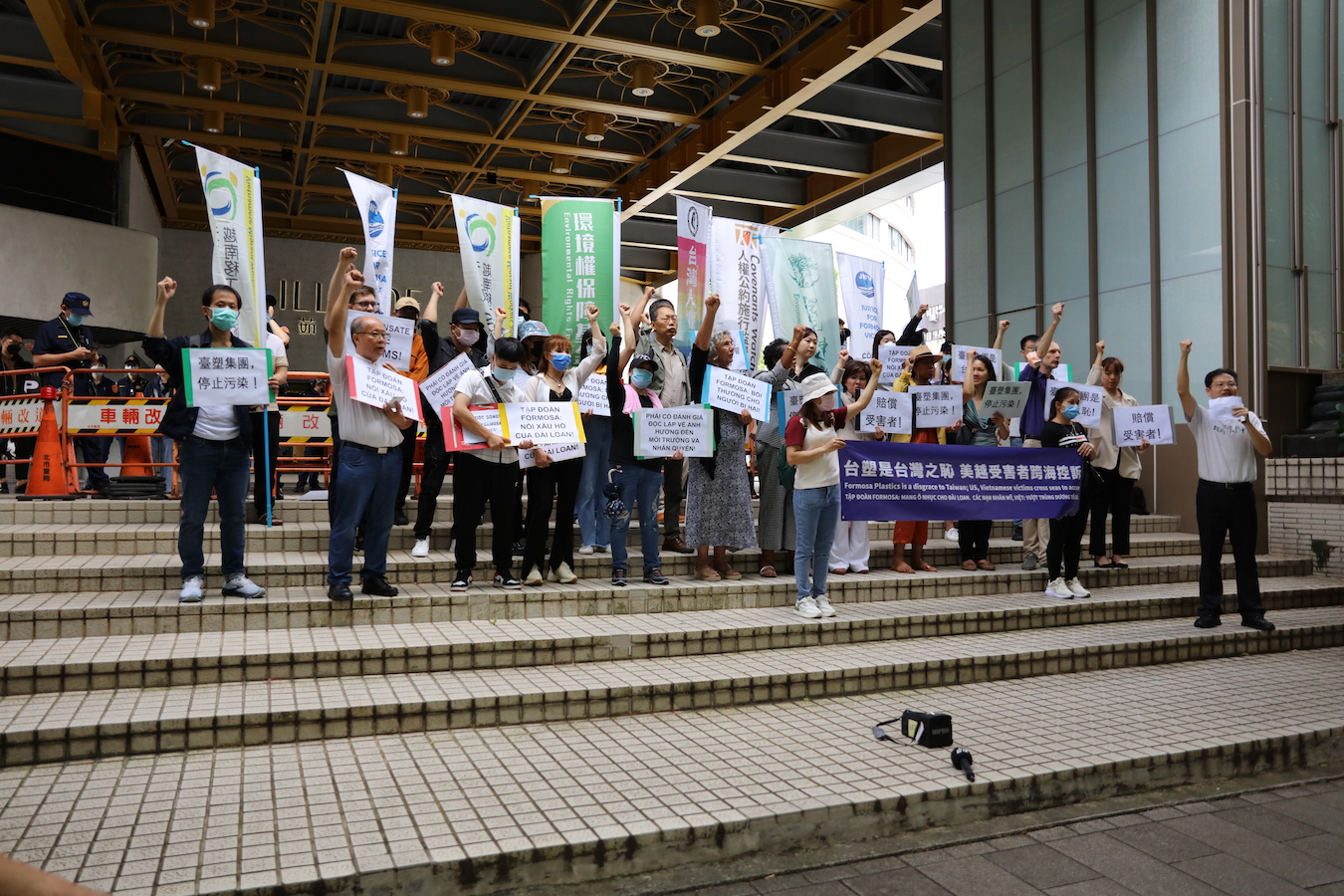 Photo credit: Environmental Rights Foundation
Photo credit: Environmental Rights Foundation
Father Peter Nguyen Van Hung: I think for me, I myself am very appreciative of the presence of Diane, Sharon, and Nancy. Why? You are the symbol of hope. This hope is the result of years of struggling for environmental justice.
Here in Taiwan, we have the lawyers, the NGOs–we try very hard to move around and find creative ways so we can help the victims in Vietnam to continue with the case here in Taiwan, but we’re stuck. Because the High Court and Supreme Court demanded that we needed to have a proper authorization. We have tried very hard in different ways, but the Taiwanese government seems to be unmoved.
I’m not sure if the pressure is from Vietnam or the company here, but with your presence here, this can raise awareness–that Formosa did not only pollute Taiwan and Vietnam. It polluted America and brings disaster to the livelihoods of ordinary people. Diane and Sharon shared about how Formosa has sought to undermine the strength of the people. That is exactly what they’ve being doing here and in Vietnam.
I myself work with the priests and bishops and people in Vietnam–with Nancy. Our hope is that one day Formosa will meet with the victims and talk with them, but I think it is impossible–unless we do something that makes their profits decrease. I hope that we can gather the energy we were talking out in the future, that we get to the edge, and something will happen. That will bring the energy of all of the people around the world struggling for environmental justice to bear fruit–for the victims of the Formosa disaster in Vietnam in 2016.
NB: It is challenging for us to place our trust in the Vietnamese government when it claims that funds will be allocated to the victims. There is no monitoring system in place to ensure that the money reaches those affected. Many individuals receive little to no compensation at all. How can we advocate for human rights and environmental justice in a country under authoritarian control?
I have heard accounts from individuals who had meetings with the Ministry of Foreign Affairs. According to them, the government of Vietnam assured them that everything was being taken care of. Additionally, during a press conference a week after we received the letter from the members of Congress, a Vietnam spokesperson declared that all issues had been resolved – people had been compensated and the fish had returned, and the individuals who were in jail, they dismissed them as law violators, labeling them as criminals who deserved their imprisonment.
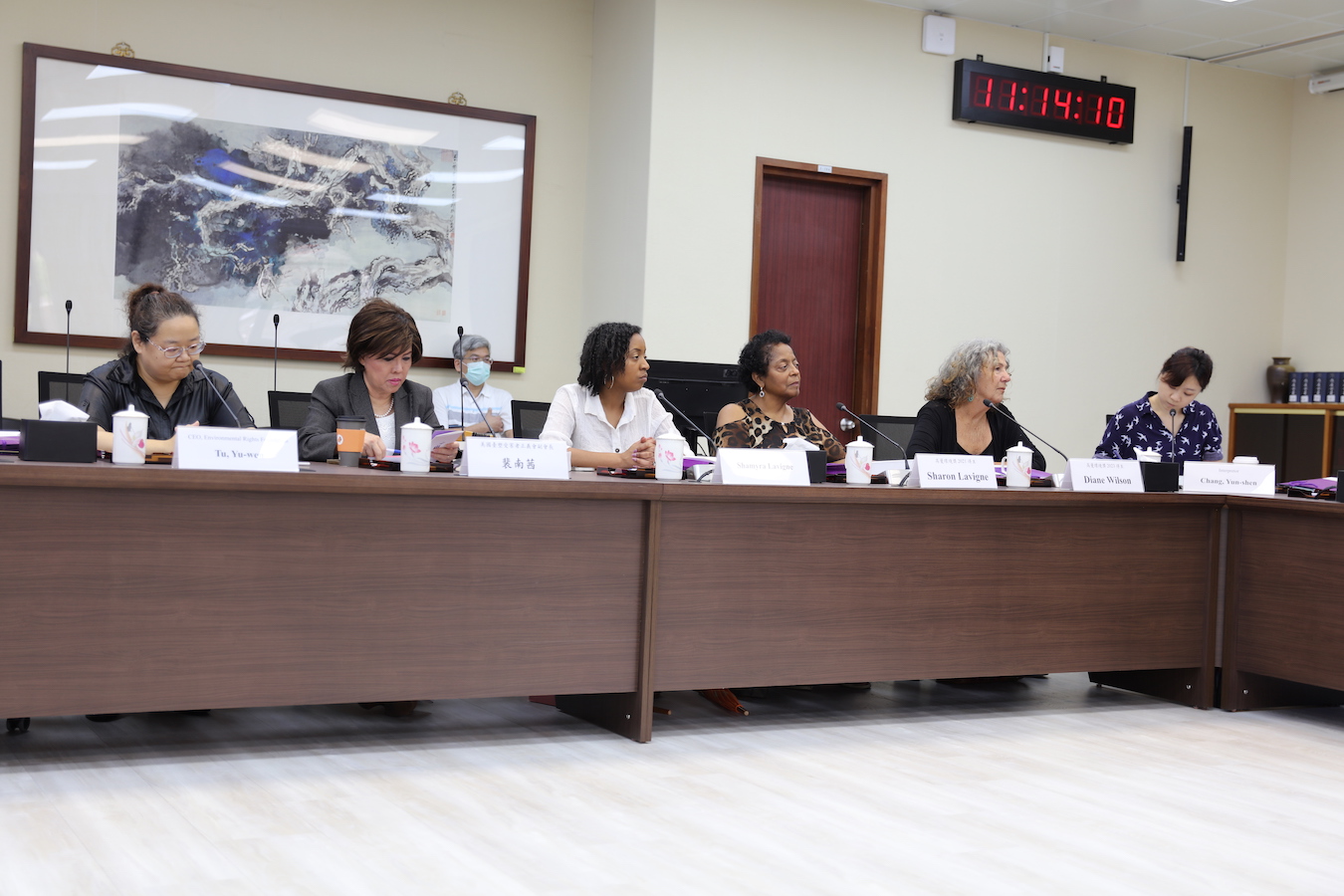 Photo credit: Environmental Rights Foundation
Photo credit: Environmental Rights Foundation
BH: What do you all think the way to push for Formosa is, to get accountability in Taiwan or elsewhere? Oftentimes, you have Formosa working with local governments, and the local governments side with them.
DW: I can tell you how I fought Formosa, which is a part of South Texas. The state environmental agency, the federal EPA, the Texas legislators, the officials–Democrats and Republicans–are all under the cloak of the corporation and the power they have. We have a Texas Democrat Senator and he was getting security contracts from Formosa. The bid was wide open, he could ask for as much as he wanted, and the company wanted it that way–they saw a way to get money, to get influence, and Formosa is very willing to do that.
To work inside the process–if you’re trying to stop an illegal, polluting international company such as Formosa–does not work. I was very naive. No support, but I started doing civil disobedience and it changed the dynamics. They cannot control it, the way that if you are asking for a permit hearing, if you have a petition, or if you have a lawsuit–they have so many lawyers on retainers and they can talk to this judge and shut it down.
What I became really good at were hunger strikes. That really started rattling Formosa. And that I could take it a very long time. They knew I was very stubborn and they weren’t quite sure what was going to happen. For some twenty odd years, that’s how I did things. Demonstrations with fishermen to climbing towers to hunger strikes to sinking my boat.
It was only in this last action–I had workers in the plant giving me information. They were my allies because they had nobody else to go to. It was so corrupt and stalled that nothing worked. Eventually, the workers in the plant that were taught I would shut them down, came to me. That’s where I got really critical information that would get at the heart of Formosa.
With some of these former injured workers, we collected this body of evidence that Formosa denied was out there. After two and half years of being doggedly stubborn about it, we collected it, got a legal aide, and filed a lawsuit against Formosa. We won. It surprised the heck out of everybody.
I remember the lawyers sitting around the table and counting how much we usually got out of a clean water suit. The most they were coming up with was 200,000 dollars. That was the precedent. So Formosa didn’t care too much.
We got 50 million and zero discharge plastic, as well as enforcement and monitoring. Now, every single time they violate the plastic permit, for the first year, it was 15,000 dollars a day, then 20,000 dollars a day, then 25,000 dollars, then 30,000. Now, they have violated it 440 times and we have 11 million dollars in penalties. It was not working inside of the box.
To me, it proved the power that civil disobedience can have.
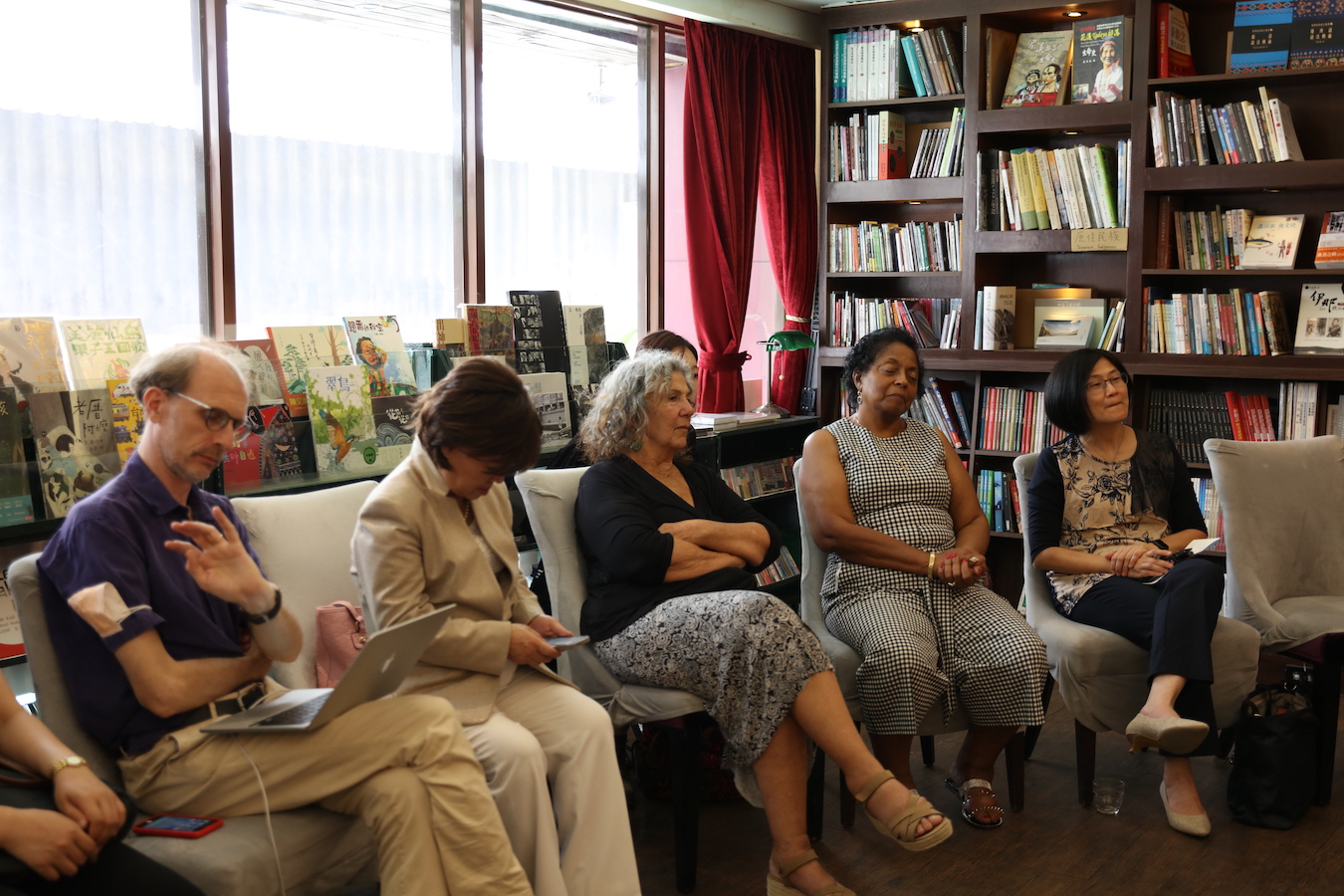 Photo credit: Environmental Rights Foundation
Photo credit: Environmental Rights Foundation
NB: In Vietnam, advocates who speak out are often arrested and imprisoned, preventing us from conducting tests or taking any action. I have been contemplating whether international entities can exert influence on the government. Despite changes in the economy since the 1970s and 1980s, political power remains concentrated.
They are reliant on global interactions and require funding from various sources. Consequently, they seek financial support from international funds. It is crucial for them to develop an effective environmental plan, although they sometimes manipulate figures. What we truly need is a well-structured plan along with robust monitoring efforts.
If consumers become aware that their actions harm families and children, they may reconsider purchasing their products, and banks may hesitate to provide loans. However, it is vital to run consistent campaigns to raise awareness and expose their practices.
SL: When we first heard Formosa was coming, none of the politicians wanted to help us. The governor definitely did not want to help us. When we found out the government was celebrating, laughing and drinking and carrying on, that was how we found out. They didn’t alert us.
Our councilman said he was on our side, that he didn’t want Formosa to come. He said Formosa offered him money when they brought him out to talk in the fields and he turned it down. I believed him. So we were still working with him.
When it was time to vote for Formosa to come in, he said he was going to vote for it, so he can get some things for us. He said he asked for six things. He asked to beautify the park, he asked for fenceline monitoring. I said we were already supposed to get that.
And I still was his friend. Until we questioned him one time. We called him to come to our meeting. I asked him why he voted for Formosa. He said he told us, that it was to get things for the fifth district.
I was angry, because I trusted him, and believed him at first. Everyone was asking him questions and he got aggravated. He started saying that God told him to vote for Formosa Plastics. I said, “What did God tell me? I know God is not lying to me. God told me to fight against Formosa. Somebody is lying and it’s not me.”
We have it all on video. You can hear him saying, “At the end of the day, God was pleased.” Can this man really represent us? [Laughs] Someone told him, “You’re supposed to represent the people, you vote the way the people tell you to vote.”
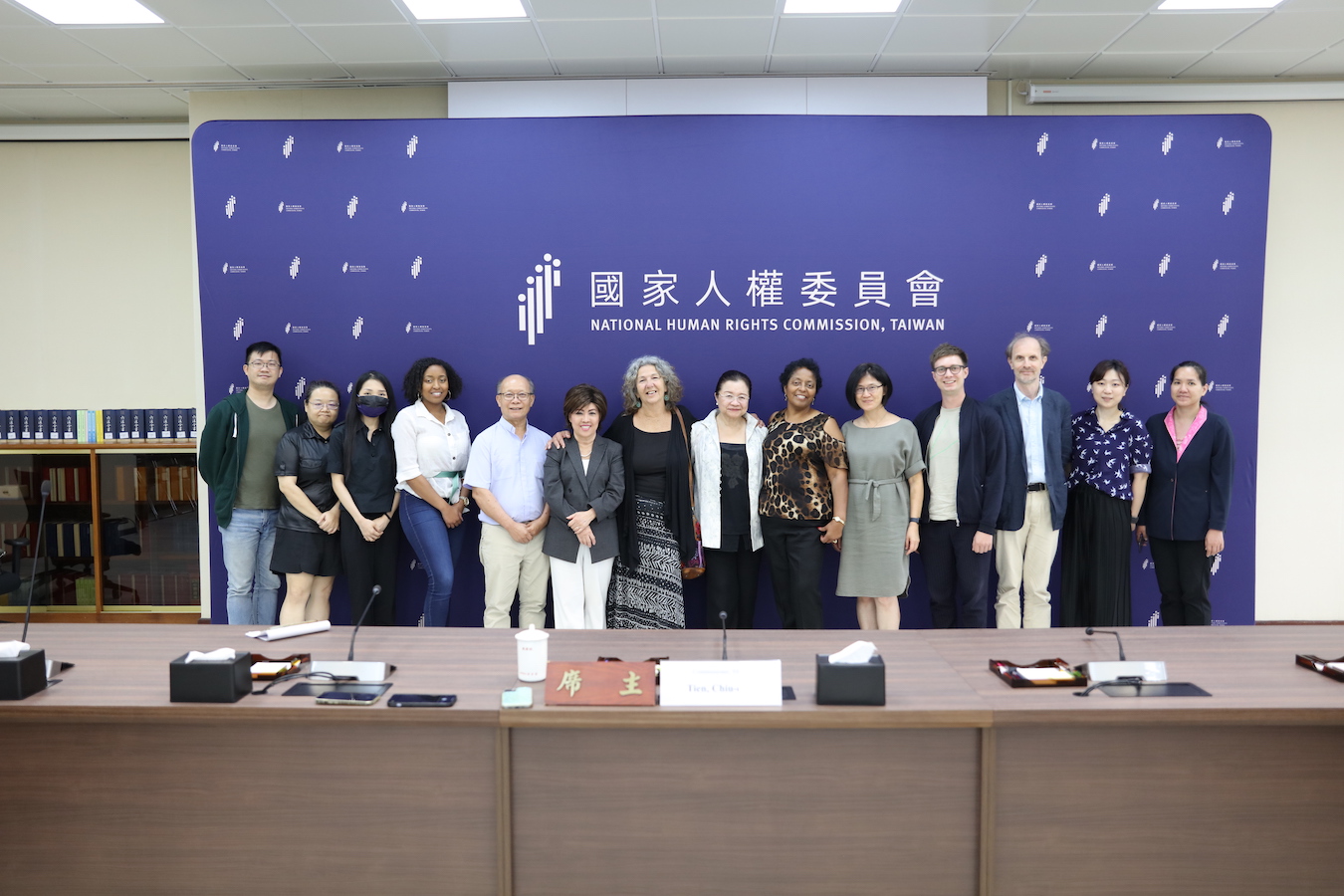 Photo credit: Environmental Rights Foundation
Photo credit: Environmental Rights Foundation
His sister was our vice president. We talked to her later on the phone and wrote a letter to tell her that she was no longer part of RISE St. James. That family is a large family and they think if he runs again, he’ll get in. I said I wanted to run for councilor. We’ve just done it without a vice president since then. I’ve been doing everything myself since the beginning, anyway.
Our next aim is to get me to the White House to take it to President Biden. Someone is working on that now–to tell him to stop Formosa, if he doesn’t come to St. James.
There are many people on the council’s side and they act like we are the enemies–not the council people. Some people try to get my mind off of what I’m doing, I ask God to keep me focused, and so far I’m still doing that. Another industry is coming–DG Fuels. We have to fight that, too, and all seven council members are in favor.
A woman came to me asking for help, she told me that the smell was coming in through her air conditioning. She said her trailer shakes. She died. I felt so bad. I didn’t know what to do to help her. I could just keep yelling, keep talking. A lot of older people tell me they are glad I’m doing this, that they didn’t know the effects of the chemicals, and that the chemicals caused the sickness in their family. I don’t get any rest. I work all the time and I do tours to show people the ten-mile radius where the plants are. I didn’t know either about this until I did the work, and I learned. It consumed my whole life.
BH: A last question for all of you. What comes next for you after this trip? And what would you say in closing?
SL: Going to shareholders’ meetings, they looked at us like we were crazy. Nobody interpreted what we were saying. It was just blowing in the wind. The man we met today, he cared. But the shareholders didn’t listen to our cry. They just looked at us. When someone is genuine, you feel that, and I didn’t see that with him.
NB: I overheard conversations from individuals attending the shareholder meetings, and it seemed that half of them were employees. However, there was one person who stood up for us. He mentioned that he had heard about the situation through the news, but witnessing the victims come forward and share their experiences had a profound impact on him. He emphasized that Formosa needed to take responsibility, clean up its act, and provide compensation for the victims. His words deeply touched me. It was heartening to see that there are some compassionate individuals amidst this situation. However, Formosa is cunning in its approach. Their tactics are consistent across all locations where they operate, and we have all suffered the consequences. They exert influence by acquiring government support and know how to manipulate people. They even resort to defaming us.
SL: Sometimes I see people staring at me in restaurants.
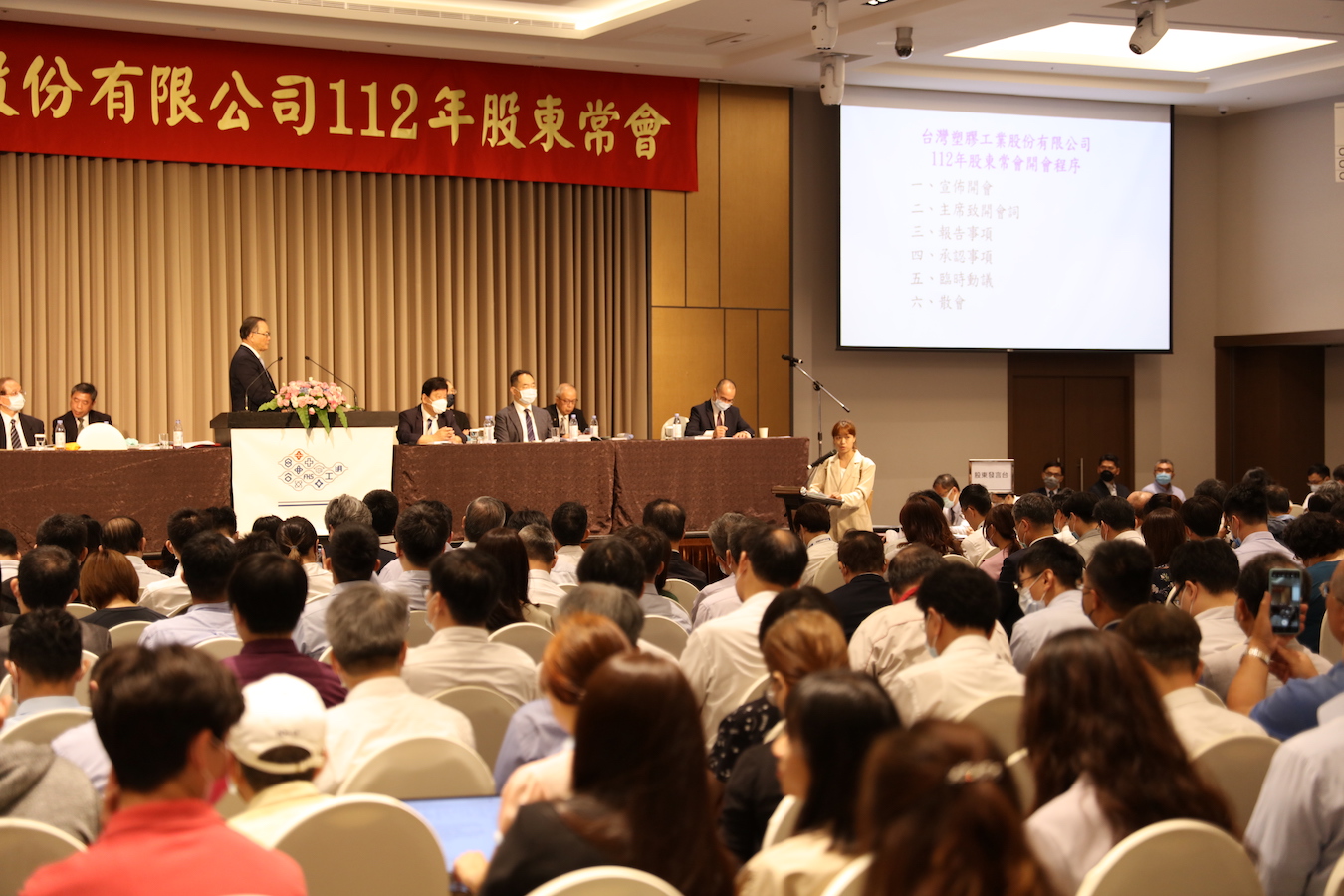 Photo credit: Environmental Rights Foundation
Photo credit: Environmental Rights Foundation
NB: We were unfairly branded as troublemakers, which led us to realize that we were all facing similar treatment. Some individuals see us as angels, while others perceive us as evils. Regardless of these labels, what matters most is our unity and collaboration. Each of us has something valuable to contribute. If we genuinely desire a better world, we must be proactive and refuse to allow ourselves to be manipulated. We cannot remain passive while others escape accountability. It is only through collective action that we can strive for positive change.
DW: I was delighted to come. I have a great deal of affection for the Taiwanese people, I admire your spirit and passion. But this is where Formosa is from–this is the belly of the beast. I know Formosa very well. I had a long conversation with Chairman Wang, the founder of Formosa Plastics, so I know them pretty well.
My reason to come up here is not because I think they’ll have a change of heart and suddenly start caring about human rights or what they did in Vietnam or Louisiana and take care of their environmental problems. I don’t trust them at all, but I would like to be right in their face so they know I’m there, that I’m not going away, and that I will fight them and the more the story has spread–and in thirty or forty years, the story has started to reach.
The bad press causes them to be known far and wide as a rogue company, who is known for retaliation against activists and workers. I believe collectively, Formosa is not going to win, because you cannot be a corporation in the future while behaving this way. It’s a dinosaur and it’s going to go down.

